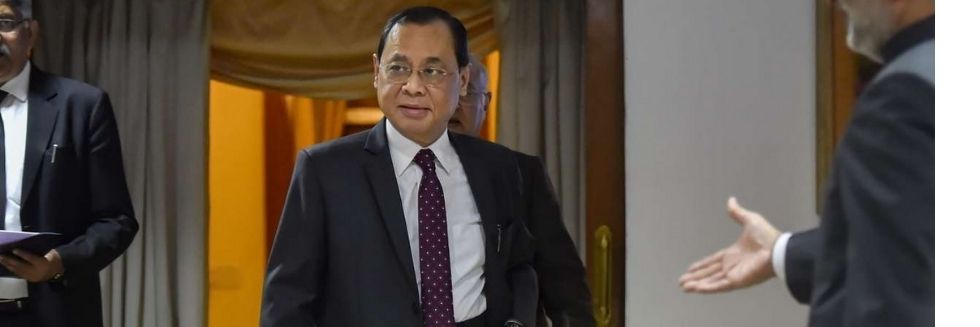Supreme Court on Tuesday commuted the death sentence of a man convicted of raping and murdering a 5-year-old girl in 2010. The bench referred to its judgment in the Shatrughna Baban Meshram case in which 67 judgments of the Supreme Court in the previous 40 years were surveyed.
“Low age of victims in rape-and-murder cases has not been considered as the “only or sufficient factor by this court” for imposing the death penalty,” the bench stated.
The observations were made while hearing an appeal by convict Irappa Siddappa. He was held guilty by the trial and court and was awarded a death sentence. Karnataka High Court upheld the decision on March 6, 2017.
He had raped and murdered a 5-year-old girl in the village of Khanapur in Karnataka in 2010. He had put the victim’s body in a gunny bag and thrown it into a stream.
Three judge bench of Justice L Nageswara Rao, Justice Sanjiv Khanna, and Justice B R Gavai confirmed the conviction but commuted the death sentence to life imprisonment for a period of 30 years.
“We find sufficient mitigating factors to commute the sentence of death imposed by the Sessions Court and confirmed by the High Court into imprisonment for life, with the direction that the appellant shall not be entitled to premature release/remission for the offence under Section 302 (murder) of the Code until he has undergone actual imprisonment for at least thirty years,” the bench said.
“Sentences Shall Run Concurrently and Not Consecutively”
The apex court also directed that sentences shall run concurrently and not consecutively. Referring to the Shatrughna Baban Meshram case verdict, the court mentioned the survey of 67 Supreme Court judgments in the past 40 years.
“In these judgements, death sentence had been imposed by the trial court or the High Court for the alleged offences under Sections 376 (rape) and 302 (murder) of the IPC, and where the age of victims was below 16 years,” the court said.
The court further added, “Out of these 67 cases, this Court affirmed the award of death sentence to the accused in 15 cases. In three out of said 15 cases, the death sentence was commuted to life sentence by this Court in review petitions.”
“Out of the remaining 12 cases, in two cases…, the death sentence was confirmed by this Court and the review petitions were dismissed. Thus, as on date, the death sentence stands confirmed in 12 out of 67 cases where the principal offences allegedly committed were under Sections 376 and 302 IPC and where the victims were aged about 16 years or below,” said the top court.
“Out of these 67 cases, at least in 51, the victims were aged below 12 years. In three cases, the death penalty was commuted to life sentence in review. It appears from the above data that the low age of the victim has not been considered as the only or sufficient factor by this Court for imposing a death sentence. If it were the case, then all, or almost all, 67 cases would have culminated in imposition of sentence of death on the accused,” went on to add the apex court bench.
The bench further stated that though such an offence was heinous and required condemnation, it was not rarest of the rare, so as to require the elimination of the appellant from the society.
The bench went on to add that the state government has not shown anything to prove the likelihood that the convict would commit acts of violence as a continuing threat to society, and his conduct in the prison has been described as satisfactory.
“There is no doubt that the appellant has committed an abhorrent crime, and for this we believe that incarceration for life will serve as sufficient punishment and penitence for his actions, in the absence of any material to believe that if allowed to live he poses a grave and serious threat to the society, and the imprisonment for life in our opinion would also ward off any such threat. We believe that there is hope for reformation, rehabilitation, and thus the option of imprisonment for life is certainly not foreclosed and therefore acceptable,” the bench said.






